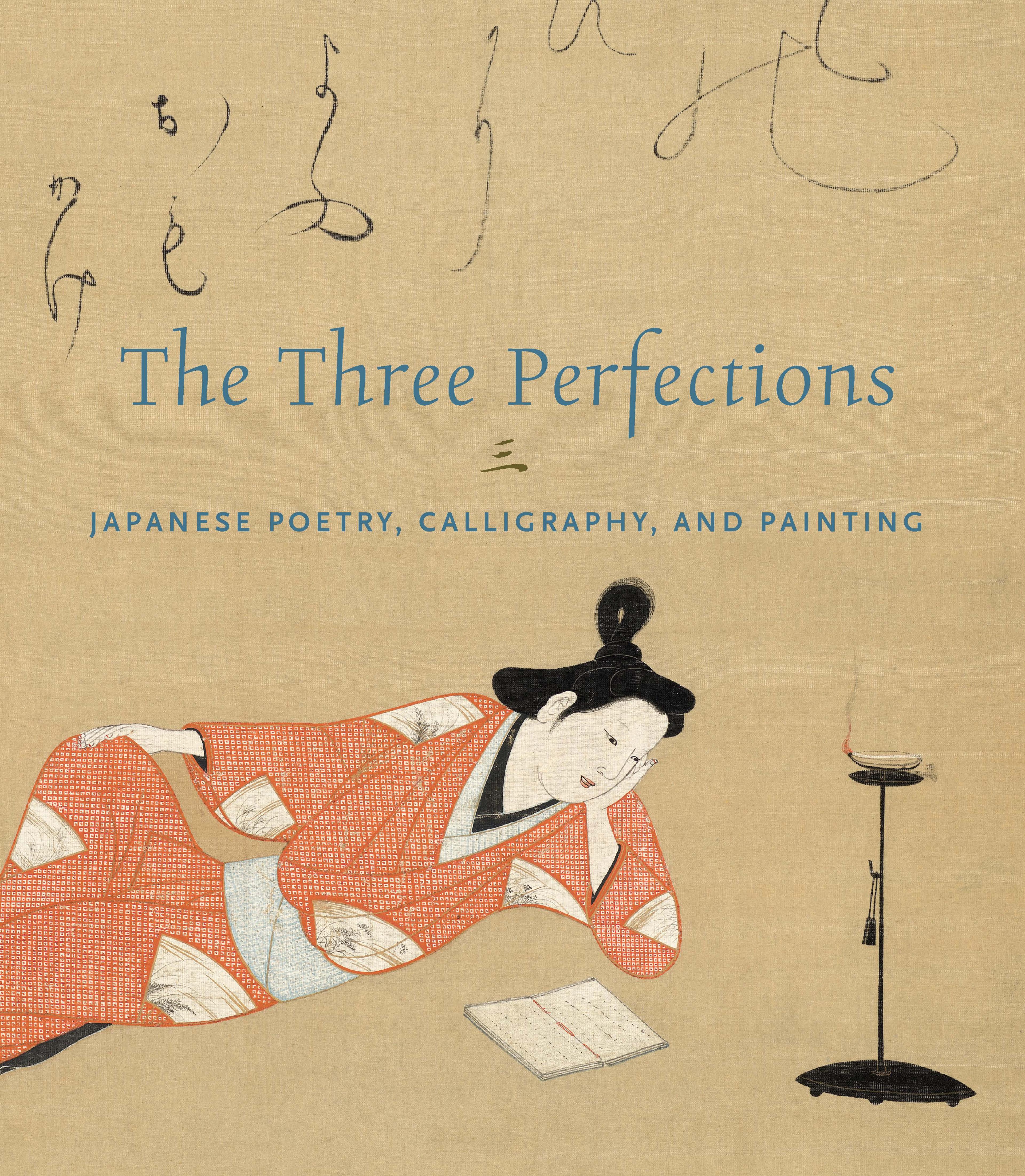Three Waka Poems
This work is a waka kaishi or “poetry sheet,” which records compositions from a poetry gathering. The three featured texts were written and inscribed by Jōben, a monk in the Tendai sect. Jōben was deemed one of the Four Heavenly Kings of Court Poetry (Waka shitennō) during his lifetime and went on to be celebrated for centuries. The last text on the sheet, titled “Praying for Love,” is a love poem:
あうまでと いのるこゝろ しるしありて
いつかは人を 三輪の神すぎ
It serves as a marker
that in my heart
I was praying for
the moment we might meet—
the cedar of Miwa Shrine.
あうまでと いのるこゝろ しるしありて
いつかは人を 三輪の神すぎ
It serves as a marker
that in my heart
I was praying for
the moment we might meet—
the cedar of Miwa Shrine.
Artwork Details
- 浄弁筆 咏和歌三首
- Title: Three Waka Poems
- Artist: Jōben (Japanese, died 1356)
- Period: Kamakura (1185–1333) or Nanbokuchō (1336–92) period
- Date: early 14th century
- Culture: Japan
- Medium: Poetry sheet (waka kaishi) mounted as a hanging scroll; ink on paper
- Dimensions: Image: 11 3/4 × 19 5/16 in. (29.8 × 49.1 cm)
Overall with mounting: 46 1/16 × 24 5/16 in. (117 × 61.8 cm)
Overall with knobs: 46 1/16 × 26 5/16 in. (117 × 66.8 cm) - Classification: Calligraphy
- Credit Line: Mary and Cheney Cowles Collection, Gift of Mary and Cheney Cowles, 2023
- Object Number: 2023.583.4
- Curatorial Department: Asian Art
More Artwork
Research Resources
The Met provides unparalleled resources for research and welcomes an international community of students and scholars. The Met's Open Access API is where creators and researchers can connect to the The Met collection. Open Access data and public domain images are available for unrestricted commercial and noncommercial use without permission or fee.
To request images under copyright and other restrictions, please use this Image Request form.
Feedback
We continue to research and examine historical and cultural context for objects in The Met collection. If you have comments or questions about this object record, please contact us using the form below. The Museum looks forward to receiving your comments.
